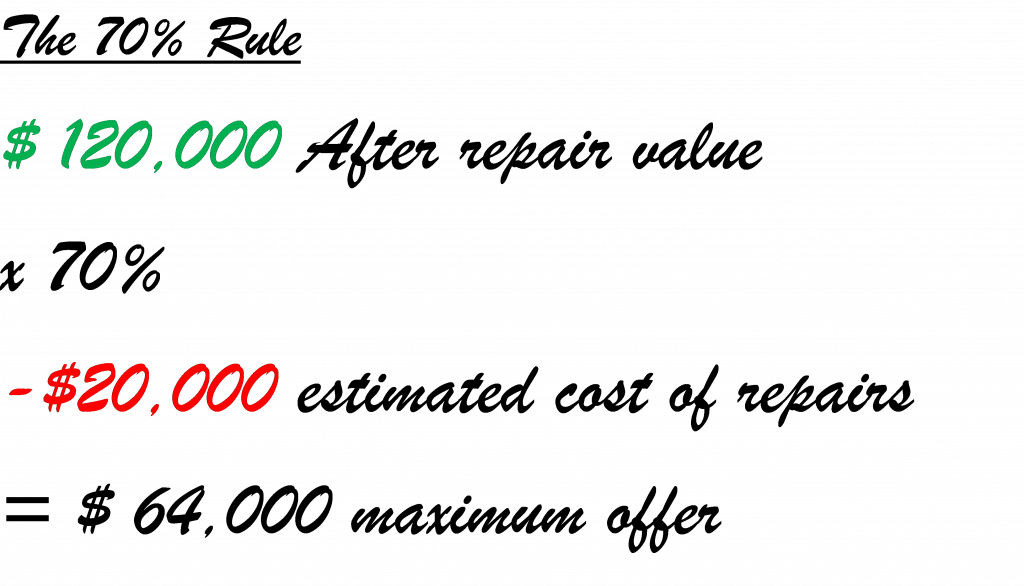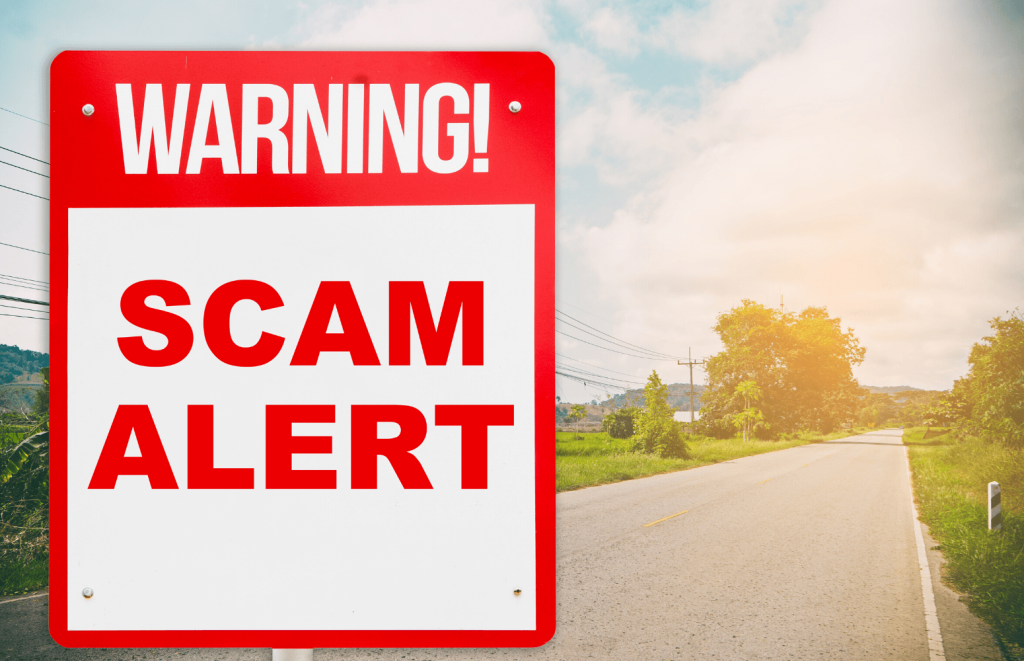
What is wholesaling real estate?
Wholesaling real estate is the process of finding properties at a discounted price and selling it to investors.
A typical real estate wholesaler puts a property under contract with a seller then finds a third-party investor to buy it. The property is sold to the investor at a higher price earning the wholesaler a profit.
However, not all homes are sold to a third-party investor. Many real estate wholesalers fix up the property and keep it as a rental in their portfolio or flip and sell it for a profit.
Most real estate wholesalers advertising to purchase properties for cash aren’t really using their own cash to purchase properties. They are relying on investors to pay cash or hard money for the properties.
They are assigning the contract to an investor, basically, they’re just a middleman in the process.
larger wholesaling real estate companies use their own funds to purchase the properties as long-term Investments or sell them to other investors.
That’s the key difference between a mom-and-pop wholesaler assigning contracts and a large company.
What is the 70 Percent Rule in Wholesaling Real Estate?
The 70% Rule in wholesaling real estate is a general guideline used by cash home buyers to calculate the maximum offer on a potential property.
Purchase offer calculation: An offer is calculated based on a few common industry practices.
Aftermarket repair value (ARV) is the purchase price of the home plus the value from renovations.
(purchase price) + (renovation value) = ARV
(ARV) x (70%) – (estimated cost of repairs) = maximum purchase offer.
Note: To calculate rehab cost use the general $20 per square foot method.

The remaining 30% includes the potential profit and loss for the investor. The 30% gives the investor cushion against issues that will come up during rehab, taxes, and other expenditures.
Accepted offer: After the offer is accepted by the homeowner, the closing process begins. Closing should happen at a title company, lender’s office, or escrow company, depending on the state.
Pros and Cons of Wholesaling Real Estate
Pros of Wholesaling Real Estate
- Stop feeding the money pit
Selling your home directly to a real estate wholesaler will stop the bleeding. You do not have to continue dumping cash into that old house that is causing you headaches.
Many homeowners have this issue with older houses. The good news is, by selling your house fast for cash, you won’t have to worry about it anymore.
This is especially true for homeowners with a second home that isn’t occupied. You won’t have to stress about paying a second mortgage, utilities, taxes, and other expenses that are burning through your money.
- Easy streamlined process.
If you are a distressed homeowner and you need to sell your home quickly, selling to a wholesaler can be a good option. Cash offers are processed faster than conventional financing and it is less risky for the seller.
A traditionally financed home can take 30-60 days to close and there is always a risk of the buyer backing out or losing financing.
Many wholesalers purchase houses sight on seen. In many instants, all the investor needs are pictures and a working knowledge of the market and they are able to offer you a competitive price for your house. The process is usually three steps.
- Information is gathered about the house via appointment.
- The property is evaluated for the best no-obligation offer.
- After the offer is accepted, the transaction can close in as little as 7 to 30 days.
3. No repairs are needed
Properties are purchased in as-is condition. The homeowner does not have to spend thousands of dollars on expensive repairs.
A substantial part of how an investor makes a profit is through forced appreciation. That means the house is purchased with the opportunity to increase its value through renovation.
4. Maximizing your profits
Selling directly to an investor can save you tons of money from fees and commissions
- Double closing cost for the property owner (buyers usually ask for you to pay closing costs) Typically 2-5 percent of the purchase cost.
- Other related fees such as carrying costs, taxes, etc.
- Double realtor commissions for your agent and the buyer’s (typically around 6%)
Note: More than 75% of homes are sold below the asking price and according to Zillow a house spends between 65 and 93 days on the market
5. Peace of mind “priceless”
Selling directly to an investor alleviates a lot of pressure on you to sell your house. If your house is distressed in need of repairs, you are behind on your taxes or you are facing financial difficulties. A good option is to sell your house to an investor.
No matter the condition of your home or the circumstance that you are in. I am sure there is an investor willing to buy it.
The transaction can go very quickly depending on your timeline, and you do not have to wonder if your loan is going to fall through at the last minute.
6. No realtor needed.
Ok let’s talk about the elephant in the room “a real estate agent” and do you really need one.
With technology today and companies like Zillow and Trulia to name a few you are more than capable of selling your home yourself however, it’s a lot of work.
You do not need a realtor to sell your home, but it’s great to have experienced representation with you.
Note: If your goal is to not pay realtor fees, keep in mind as the seller you are responsible for paying the buyer’s agent commissions in Texas.
As for an investor you should have a few real estate agents on your team.
To serve the homeowner best, you need options and a realtor gives you added benefits.
Not all houses need to be a fix and flip or a rental, that is one dimensional. As an investor, you should always seek to serve the homeowner the best you can. That does not always mean you purchase their home.
They are reaching out to you to solve a problem; your job is to help them.
Next time a homeowner brings a property to you that needs light repairs, or their situation isn’t that dire, help them out.
Let’s say the property needs $10,000 in repairs and they can get full price on the open market.
Introduce the homeowner to your trusted contractor, painter, plumber, etc. I am sure some homeowners can find a creative way to get the money they need to do a light rehab.
As an investor, you are not doing the work for them but providing a little help to the homeowner that goes beyond just buying their house fast for cash.
After the work is done you can recommend the homeowner use your realtor to list the house on the MLS.
The scenario does not generate income for the investor. However, you created value and income for the homeowner, realtor, and contractor.

- Don’t waste time with for sale by the owner
Selling your home can be stressful enough as it is, with packing, moving, cleaning, and relocating.
Often times the money you save by not paying a realtor is replaced with headaches, anxiety, and stress.
For sale by owner isn’t easy, here are some of the tasks you will be responsible for:
- Market research
- Conducting showings
- Answering the phone from potential buyers
- Working knowledge of real estate laws and guidelines
- Negotiation
- Qualifying buyers
- Giving tours of the property
- Prepare documents (contracts, deeds, closing statements, etc.)
- Advertise the property
If you are up for the challenge no problem some homeowners are. But if you are looking for an easier stress-free process, you should consider selling to a real estate wholesaler.
Cons of Wholesaling Realestate
- It’s not for everyone
If you have a house that is in great condition and you can list it on the MLS for market value, selling to a wholesaler isn’t what you want to do.
You want to work with a realtor or try selling it yourself.
We are not suggesting that investors won’t buy houses from the MLS at market value some will, and it can be a great option.
However, most investors are seeking a higher return on their invested capital, and other methods are more favorable.
- Selling Price
Selling your home to a wholesaler isn’t for everyone and all situations.
If you have contacted or will contact an investor in the near future. It’s imperative that you understand that investors seek to purchase homes at a discount. Usually at least 30% of the after-repair value (ARV) minus costs of repairs.
So, don’t be shocked or discouraged if the offer price isn’t what you thought it would be.
Properties purchased by investors are usually deeply discounted allowing the investor to earn a profit. Many things can and will go wrong during rehab, so enough cushion needs to be present to protect the business.
Even so, many investors find themselves losing money on properties from unforeseen circumstances.
Property owners must understand that getting a high selling price isn’t the advantage of working with a wholesaler.
The condition of your house will determine the cash offer you receive. If you follow the simple 70% rule you can get a general idea of what an offer would be.
You shouldn’t feel defensive or angry at an offer. At the end of the day, it all comes down to numbers.
The offer is no obligation, so if you don’t like it find another wholesaling real estate company to work with.

- Your Losing A Home
The factor of the matter is when you sell to these companies you could be losing a house that is dear to you and has been in your family for years.
If you recall from earlier in this article, I talked about distressed houses and homeowners.
Often times investors purchase homes from families that are facing tough circumstances. Whether it’s going through foreclosure, divorce, behind on taxes or inherited property, etc.
It’s not an easy situation for homeowners to handle and chances are you are selling a home that you wanted to keep.
Although selling your house will in many cases help you financially and relieve a lot of stress and anxiety. It doesn’t change the fact that you are selling your house.
To put it into perspective. My wife inherited a house from her great-grandmother when she passed. She lived there for several years after she graduated from college and started her career.
After moving to a new house, she wasn’t able to sustain paying the taxes on her inherited house. Consequently, she fell behind on her taxes and ran the risk of the city taking her home.
An investor contacted her about selling her house for cash and she agreed to the offer.
Although she was able to unburden herself from the house it was at a cost that wasn’t financial.
It has been 7 years since she sold her house, but lingering regrets still remain.
My wife was and still is attached to that home, she has a lot of fond memories of her great grandmother there. Our goal is to buy the home back one day.
We buy houses companies offer a great service, but at the end of the transaction, you are losing a home.
- You Don’t Always Know Who is Buying Your Home
Often times when homeowners work with wholesalers they only see one or two people representing the company during the transaction.
You might get a false sense that they are the actual people buying your home.
In many circumstances yes, they are buying your home outright with cash reserves.
However, many wholesalers are selling their interests in the property to other investors that you aren’t aware of.
Does this affect the validity of the transaction? No, but it’s information worth knowing.
Most consumers aren’t concerned with where and how their new iPhone is made. They just want a great product that functions and works as advertised.
- No Licenses Required
Unlike real estate agents, cash home buyers aren’t required to have a license in most states.
Although having a license isn’t needed there are many we buy houses company owners and employees that do have a real estate license.
There are cash buyers that use their licenses to close transactions with a property owner only charging a 1% fee instead of the traditional 3% fee by real estate agents.

- Potential Scammers
In any business or industry, you are going to find people who operate unethically to get ahead.
There is always someone looking to take advantage of you regardless of what your situation is or who you are. Unfortunately, this is a part of life and business.
Here are some ways to see if you are dealing with a scammer.
- Do your research: Because a wholesaling real estate company is new it doesn’t mean that it’s a scam all companies have to start somewhere. Also, if a company has been around 10 years doesn’t mean that they have good business practices either. Do your research check the Better Business Bureau (BBB), Google, and any other resources you have available.
- Know what you are Paying for: Check for hidden fees. It’s common in many industries to hide fees within contracts. You are quoted one price in the beginning and end up paying a higher one.
- No in-person visits: Technology has come a long way but when working with a cash home buyer a representative of the company needs to be there to evaluate the property. This isn’t the type of business where you can totally take away in-person interaction.
- You get a bad feeling: This isn’t technical and there is no science behind it. But if you are working with a cash home buyer and you are uneasy, trust your gut instincts.
- Ernest money: Make sure the cash home buyer provides proof of funds and an agreed-upon earnest money amount.
- Offer too good to be true: There are times when investors pay too much for a home. But if you know your home is worth $70,000 and you get an offer for 3 times that, something isn’t right. Your best bet is to walk away and not get excited about a big payday.
- Never pay an upfront fee: A legitimate sell your home for cash business will not require upfront fees.
- Too eager to send the buyer money: If a cash home buyer is willing to cut you a check for a property they haven’t seen or evaluated. This is a red flag and you should stay clear. Don’t get caught off guard with the promise of a big payday.
Conclusion
Wholesaling real estate is the process of finding properties at a discounted price and selling it to investors. Wholesalers will either keep the properties in their portfolios or sell them to an investor. Selling your home to an investor can be a good option, but you need to know the pros and cons. This article covers what is wholesaling real estate and the pros and cons.
